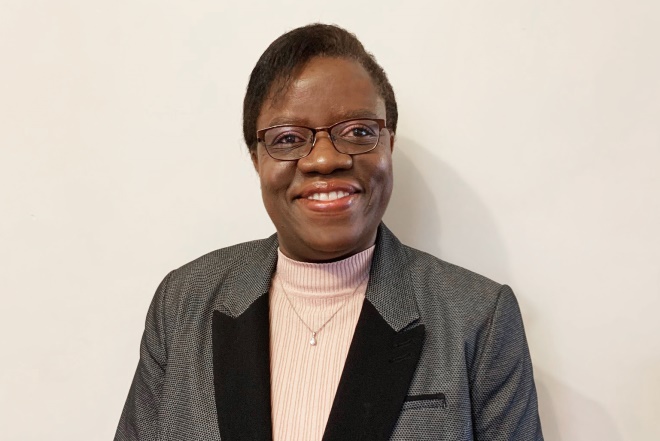
Shutterstock.com

“Change will not come if we wait for some other person or some other time. We are the ones we’ve been waiting for. We are the change we seek.” — Barack Obama
On 13 March 2019, the Privy Council announced the appointment of five new members to the GPhC Council. Reading the biographies of the new board members left me with mixed feelings.
There was no doubt that the new appointees had the necessary credentials and expertise for the job; however, the lack of “black pharmacy faces” once again felt somehow wrong. Many questions came to mind. The first were: Why does this board not look like the people it represents? Why are there no black professionals?
And then, many more questions followed: Is it possible that there were no worthy black applicants? How can we change these outcomes in the future? Were the appointments unbiased? How many black professionals were considered? How many black professionals were interviewed? What was the ethnic composition of the selection panel(s)?
Even though my application for the role was not shortlisted, I know that I was not the only black professional that applied for the position.
You may ask why colour and ethnicity matters, shouldn’t we be colour blind? Why look at colour when we should be looking at capabilities? But it does matter because there is no such thing as colour blind in today’s society and definitely not in our profession, where 6.4% of the GPhC pharmacist register identify as black and 2.1% of the pharmacy technician register identify as black.
Having no black pharmacy professional representation on the board, time and again, in a profession that has black members is no longer acceptable. As a black registrant, I ask myself, where are the leaders that look like me? Where are the role models? How did those board members get to where they are? What path did they follow?
I feel the doors of the GPhC board are closed to pharmacy professionals like me. I wonder whether the concerns faced by black registrants are ever discussed at board meetings. And that is why I cannot help asking myself, why does the GPhC thinks that it is OK to not have a single, black pharmacy professional on their board?
I am hugely concerned that nothing is ever going to change. How is this board going to address the needs of black registrants – such as the pass rates for the preregistration exam – when similar boards appointed before never addressed them? How are the GPhC board going to make sure that racial discrimination is stamped out of the profession?
There is plenty of evidence that organisations perform better when their leadership is diverse and inclusive. My confidence in the GPhC’s ability to support me as a black registrant was severely eroded when it was reported that a “worrying” proportion of minority ethnic pharmacists were suspended or struck off the GPhC register.
Because of the debate that has recently taken place around the equality, diversity and inclusion in pharmacy, I do believe the GPhC is committed to making progress in this respect. So, why not start by planning for more inclusive boards?
If the fact is that black applicants did not have the same range of experience as the successful members, then how are we going to address this? While it is every registrant’s responsibility to acquire the necessary experience and knowledge, often the roles which allow for development are beyond their reach. So, what about creating the opportunities for aspiring black board members? Why can we not have a fellowship programme for black future leaders so they can obtain the necessary experience and knowledge? I am not talking about tokenism. I am talking about facing the reality of our profession when it comes to the career progression of black registrants.
For instance, at one of the trusts I currently work at, a handful of one-year secondment leadership opportunities became available in the pharmacy department. None of the positions were advertised — almost all positions went to a staff member who was white, with only one opportunity awarded to an Asian staff member. These professionals will all benefit from gaining “hands-on experience” and potentially, they could be appointed permanently after the secondment period. Black staff with the expertise and experience to carry out the job, were overlooked.
You may ask why I am singling out the GPhC for criticism while it remains true that other pharmacy bodies do not have enough black representation on their boards. The answer is that I have a choice not to join those bodies. I do not have a choice with the GPhC. I therefore want to see people like me sitting at the table where decisions about the future of the profession are made. Is the GPhC really inclusive and diverse when they think it is OK time and again to have Asian registrants as the only BAME representation?
With this reality in mind, I cannot see why the profession cannot have tailor-made leadership programmes for black professionals deserving of the opportunity. The profession will unquestionably benefit from having a more inclusive and diverse board.
Secondly, for the sake of transparency, the GPhC chief executive, Duncan Rudkin should provide clear and straight forward answers to the questions I listed earlier in this article.
Finally, while I do not dispute the credentials and expertise of the new appointees, I wonder if the new members will be able to bring fresh ideas and renewed energy when some of them have already served on other boards or have been re-appointed to the board for a second term. Our profession is going through some important changes and challenges. Compliance or sticking to the faces we know may not bring the changes we all need.
I am no longer able to wait for changes to come in the distant future. That is why I followed Obama’s advice and applied for the position. However, I am not reassured that my rejection, or the rejection of the other black applicants, was purely based on lack of skills or experience and therefore I ask myself: Is the GPhC ready to embrace black pharmacy professional leaders?

Source: Elsy Gomez Campos
About the author:
Elsy Gomez Campos is a locum hospital pharmacist.
Elsy is happy to be contacted via email at: elsygomez@yahoo.co.uk
Response from the GPhC:
It is important to underline that the role of the GPhC is not to represent those on our register. As the pharmacy regulator our purpose is to protect, promote and maintain the health and safety of the public who need or use services from pharmacists or pharmacy technicians, or services provided at a registered pharmacy.
Our council members are appointed by the Privy Council, and the processes we use for identifying the candidates we recommend for appointment are carefully scrutinised by the Professional Standards Authority (PSA).
From our September Council papers, we considered how to attract a broad, diverse range of suitably qualified candidates, as well as the need to conduct the recruitment and selection processes in line with our legal obligations on equality, and our commitment to equality, diversity and inclusion more widely. This year we worked with an external agency to recruit the candidates. This was to avoid any direct, associative, perceptive or indirect discrimination — and to increase the diversity of the candidate talent pool. Our advertising campaign was designed to ensure broad appeal and to identify a more diverse field of candidates. Reasonable adjustments were also offered to meet the needs of individual candidates.
All candidates were anonymous to the selection panel until the final interview stage. Panel members were mindful of possible perceptions of bias and made appropriate declarations (for example, where a candidate was known to them in a professional capacity).
As an organisation we are committed to equality, diversity and inclusion (EDI) in everything that we do, and are continuously working to make sure that our processes are free from discrimination.
You may also be interested in
The importance of diverse clinical imagery within health education

Government should consider ways to prevent ‘inappropriate overseas prescribing’ of hormone drugs, review recommends
